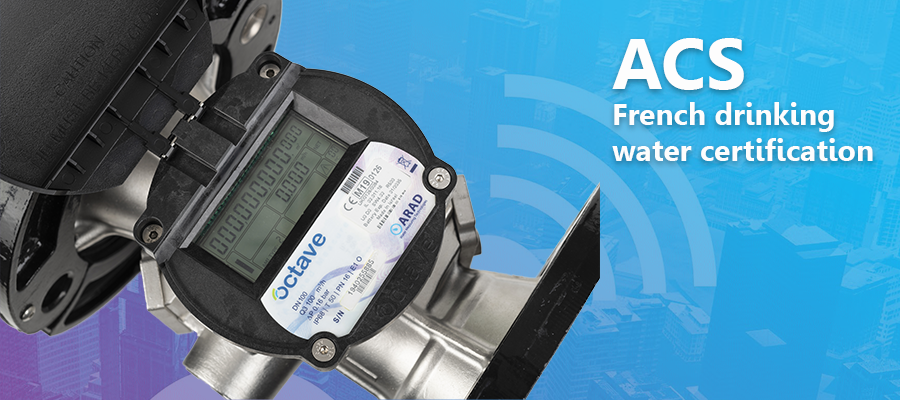This is the third of our blog posts reviewing different water standards around the globe. After looking at the UK and Australia/New Zealand, now we will be looking at France.
France has been known for its superb drinking water through the ages. The Romans built over 50 kilometers of aqueducts to supply the gentry in the Roman outpost at Nimes with the renowned water from Vers-Pont-du-Gard.
Today, France is still famous for its high quality drinking water, with bottling giants like Evian and Perrier. The latter claims to be the Earth’s first soft drink.
France is One of the Richest Countries in Water Resources
With 33,000 abstraction points, 31,000 of these being groundwater resources, France is definitely blessed with an abundance of drinking water. Though many of these water sources only provide a few hundred liters of water a year, they all have to be tested to make sure they meet French and European standards. [1]
Testing the Waters
Eighty percent of France’s water regulations are based on the European Water Framework Directive (WFD) of 2000, which is still in force today.
The French Legislative Framework has been implemented in order to comply with the WFD. These laws include:
- The 2004 Charter for the Environment, which is an actual law calling for a healthy and sustainable development and upkeep of France’s water sources.
- The 2006 Law on Water and Aquatic Environments, which was enacted specifically to ensure that France would meet the EU’s WFD requirements. These laws cover:
- The right of all citizens to clean, fresh water.
- The requirement to adapt to climate change.
- Control and reduction of agricultural pollution.
- Coordinated action between local and regional government for proper water management.
- Simplification of water laws and directives.
- Transparent management of public water and sanitation facilities.
- Reforms in freshwater fishing.
- In 2009 and 2010 the Grenelle Environment Laws I and II were passed. These laws prohibited phosphates in detergents, called for a reduction of herbal medicines and biocides by 50% over a ten year period, as well as restoring and maintaining wetlands and biological reservoirs. In addition, the law called for an improvement of urban wastewater treatment plants. [2]
France—A Different Outlook on Water Laws
French historian Jean-Louis Gazzaniga once said “the most beautiful law in the world will not make a drop of rain fall.”
In France there are no water rights per se. There is no national water code and the laws that do exist are incorporated into other laws and codes. The French civil code states that water belongs to no one. Water sources are national resources whose use is common to all. For example, water management is part of the Environmental Code, public drinking regulations are part of Local Authorities Code and river public domain is part of the General Code of Public Property. Water anti-pollution laws have been in force in France since 1964, but they are covered in the Criminal Code.
In order to make the complex laws less territorial and more efficient, regional commissions were established in 2005. The country was divided into twelve regions by their natural river basin, with each region committee known as the “water parliament.” Each parliament is composed of representatives of local academia, water authorities, and water users as well as national government representatives. The water parliament is responsible to ensure that there is a balanced and sustainable approach to the management of water resources. [3]
ACS—Certificate of Sanitary Compliance
Since 1997 the French Department of Health requires all companies, local and foreign, that manufacture any kind of material or accessory that comes in contact with drinking water to obtain and maintain the French Certificate of Sanitary Compliance (Attestation de Conformité Sanitaire).
There are different types of ACS certificates: MAT for pipes and sealants, UV for UV reactors, Membrane for filters and filtration systems, and ACC for sensing and measuring elements. All items that come in contact with drinking water are tested that there is no risk of contaminating the water and certification is good for five years. [4]
The Final Word
Though standards for water usage are similar around the world, especially in EU countries, they are not the same. Whether it is a more stringent standard for nitrate levels or testing how well a water meter can withstand extremely high temperatures, manufacturers have to think globally and make sure that their products meet the highest of standards so that they will be universally acceptable.
We at Arad are proud holders of the French ACS certificate and look forward to helping you with your water management needs.
References
[1] Bernard Barroqué, Water Sector Regulation in France, February, 2007
[2] Ministry of Ecology, Energy, Sustainable Development and the Sea, French Water Policy, 2010
[3] Victoria Chiu, Water Law in France, 2020
[4] Directorate General of Health, Certificate of Sanitary Conformity, September 28, 2018
